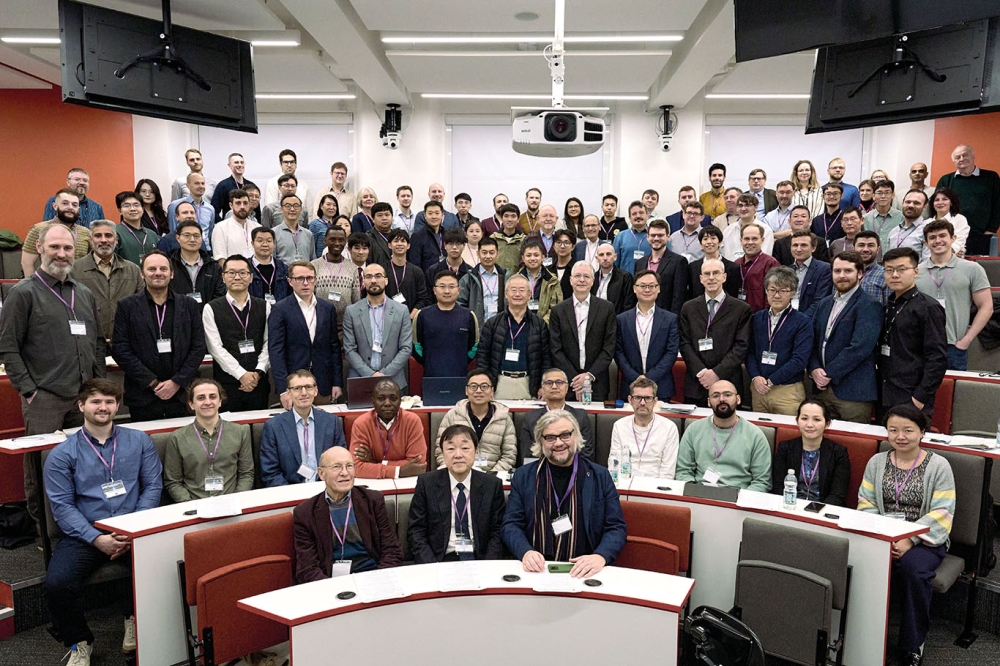Nichia marches on, Nakamura licks wounds and pays lawyers
After a despondent Nakamura jetted back to Santa Barbara, CA, his home for the past five years, to lick his wounds, Compound Semiconductor asked what plans he had for the money. Nakamura revealed the inevitable: "After paying taxes and my lawyers, $8 million has become a small amount of money," he admitted. Ah yes, the lawyers.
Despite Nichia s lingering reservations about the final agreement - the company contends that the court still awarded Nakamura too much, and that the 1997 start date of an interest calculation adding 20% to the initial $6 million settlement was incorrect - it was in every other way the victor in this dispute.
So when it came to the crunch, the Tokyo judge fell on the side of corporate Japan, leaving Nakamura to curse what he sees as the continued exploitation of employees who in many cases regard the firm that they work for to be more important than their own family. He also questioned the effect that it might have on future generations of engineers: "A professional baseball player earns $6 million a year, but that s what I receive for my entire career in research," lamented Nakamura.
Nichia saw the decision simply as a vindication of the risk it had taken when it decided to mass-manufacture blue LEDs. "In the settlement, we think that the court acknowledged the fact that only the firm, and not the employee, takes the risk of funding research and development," it said in a statement.
Of course, Nakamura would argue that he carried out the crucial research against the wishes of his bosses at the time.
In Japan, the degree of compensation is calculated by looking at the amount of "extra" profit that a company has made thanks to an invention by one of its employees. The precedent that had already been set before the Nichia case is for the inventor to receive 5% of that "extra" profit, and the court seems to have accepted this, calculating that the company contributed 95% to the development.
But Nakamura didn t get his 5%. The difficulty for the judge was that, thanks to the phenomenal success of its blue LEDs, Nichia s "extra" profit was enormous - an estimated $2 billion through 2004. Nakamura s 5% would therefore have meant a huge pay-out.
As a result, believes Nakamura, the high court judge decided to cap his compensation at $6 million, for fear of damaging Nichia s future growth. The decision also took into account Nichia s profit from extensive cross-licensing contracts, and reduced Nakamura s contribution accordingly. However, Nichia maintains that a single researcher cannot be entirely responsible for such a major technological breakthrough.
If Nakamura had received a much larger payout, what signal would it have sent out to Japanese industry? Imagine you were about to build a fab to manufacture millions of laser chips for next-generation DVD applications. If the court had sided with Nakamura over blue LEDs, the precedent would be set in favor of employees, and any firm thinking about making a new product in high volume would have to take on board additional risk. In short, it may stifle the industry.
So on goes Nichia, cranking out its blue and white LEDs at an absurd profit margin that must make chief executives around the globe turn green with envy, safe in the knowledge that no court will be taking that profit away. "We are relieved to have finished the dispute, as all employees who were involved in the case can now concentrate on and return to their essential business," said Nichia.
Back in his UCSB lab, Nakamura may well be wishing that he d taken up baseball instead of materials technology. But, in the end, while you can t help but feel sorry for the researcher - at least, as sorry as one could ever feel for a resident of Santa Barbara - the judge had no option but to side with Nichia.
What do you think? Did the Tokyo High Court make the right decision, or should Nakamura have received more compensation? Write to the editor with your view on the case (e-mail: michael.hatcher@iop.org).































